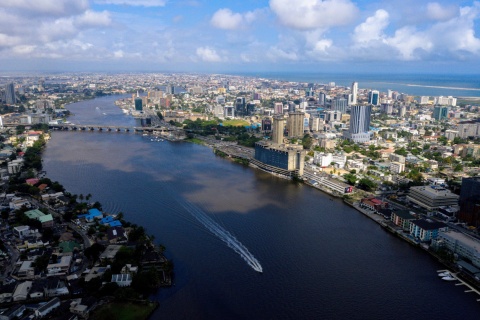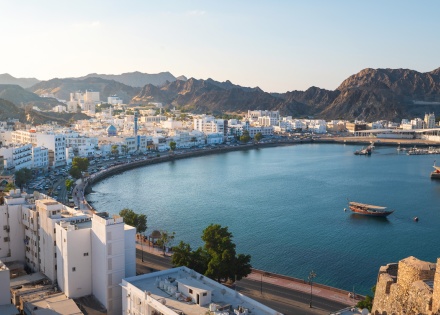Securing Work Visas & Authorization in Nigeria
You just got the chance of a lifetime to expand your business into Africa's largest (and still growing) economy. You've even got the perfect team ready to go.
Only problem is, you don't really know what you have to do to start doing business in Nigeria. Do you need to set up a legal entity first? Is that even legal?
Understanding how to obtain legal work authorization is critical. Nigeria has strict immigration laws, which companies must obey to remain compliant and avoid costly penalties.
First thing's first: understanding the types of visas available in Nigeria.
Types of visas
Foreign nationals seeking employment in Nigeria typically apply for one of two visa types: a Subject to Regularization (STR) visa or a Temporary Work Permit (TWP).
The STR visa is designed for long-term employment and is commonly used when a foreign national is hired for a permanent or extended assignment. It allows the individual to enter Nigeria and then apply for a Combined Expatriate Residence Permit and Aliens Card (CERPAC), which serves as both a work and residence permit.
In contrast, the TWP is a short-term solution intended for foreign nationals entering Nigeria for temporary assignments, such as meetings or conferences.
Immigration compliance in Nigeria
Maintaining immigration compliance in Nigeria is non-negotiable. Noncompliance can result in fines, deportation, blacklisting, or reputational damage for both the employer and the employee.
Companies must also deal with the Expatriate Quota system, a unique regulation in Nigeria that limits the number of foreign workers a company can employ. This system is enforced by the Nigerian Immigration Service (NIS), and quota approval is a prerequisite for hiring foreign nationals on long-term assignments.
Differences between a work visa and a work permit
In Nigeria, a visa gives legal entry authorization, while a work permit grants the right to work. The STR visa allows entry but must be followed by an application for a work permit and residence status via the CERPAC. The TWP, on the other hand, combines entry and limited work rights for a short duration, typically up to 90 days.
Work visa application process
Step-by-step guide to applying for a Nigeria work visa
- Obtain Expatriate Quota approval (for STR visas).
- Apply for STR or TWP visa at the Nigerian embassy or consulate in the applicant's home country.
- Upon arrival in Nigeria, apply for the CERPAC card within 90 days (STR only).
- Complete necessary biometric and documentation checks with the Nigerian Immigration Service.
Required documentation for a work visa application
Applicants generally need:
- A valid passport
- Completed visa application form
- Offer of employment letter
- Curriculum vitae
- Corporate documentation from the Nigerian employer (e.g., CAC certificate, Expatriate Quota approval)
- Passport-size photographs
Expected processing times and associated costs
Visa processing times vary by embassy but typically range from two to four weeks. CERPAC processing may take additional time. As of 2025, the fee for a CERPAC card is approximately US$1,000, though fees vary by nationality and embassy location.
Employer obligations and responsibilities
Sponsorship requirements for work visas
Only registered Nigerian companies can sponsor work visa applications. Employers must demonstrate a legitimate need for the foreign hire, provide the required corporate documentation, and secure Expatriate Quota approval where applicable.
How to ensure immigration compliance
Employers must:
- Maintain accurate employment records
- Track visa and permit expiration dates
- Provide timely updates to NIS about job changes or terminations
- Comply with Expatriate Quota limits and updates
Noncompliance can result in sanctions, including loss of quota allocations or business restrictions.
Requirements for a work permit in Nigeria
Eligibility criteria for applicants
To qualify for a work permit, the applicant must:
- Have a job offer from a registered Nigerian entity
- Possess qualifications aligned with the job role
- Not be seeking employment in a field reserved exclusively for Nigerian nationals
Required documents for work authorization
In order to get work authorization, the applicant needs to have:
- STR visa (or TWP if short-term)
- Offer letter and job description
- Academic and professional certificates
- Corporate documents from sponsoring employer
- Evidence of Expatriate Quota approval (for STR only)
Temporary Work Permit (TWP) process
TWP applications are initiated by the Nigerian company via an online application through the Nigeria Immigration Service portal. Once approved, the consulate issues a visa approval letter that allows the foreign national to obtain the TWP visa. The TWP is valid for up to 90 days and is non-renewable.
Tips & resources for a successful application
For the best chance of success, follow these tips:
- Start the visa process well in advance to accommodate processing timelines.
- Ensure documentation is complete and accurate.
- Work with legal or immigration specialists who understand Nigeria's specific regulations.
- Review Nigeria Immigration Service guidelines regularly for updates.
Make it easy with an Employer of Record
An Employer of Record (EOR) allows businesses to hire employees in foreign countries without setting up a separate legal entity. The EOR becomes the legal employer, handling compliance, payroll, taxes, and work authorization, greatly reducing risk and overhead.
Start hiring in Nigeria with Pebl
If you want to get your team of foreign nationals working in Nigeria, there is a lot to take care of. Regulations, language barriers and visa processing times, just to mention a few.
With Pebl's (previously Velocity Global) Employer of Record services, we act as the legal employer in Nigeria, so we do it all. Visa sponsorship, onboarding, payroll, localized benefits, and more. You worry about the business, we worry about the rest. Hiring in Nigeria and 185+ countries worldwide is just easier when you work with Pebl.
This information does not, and is not intended to, constitute legal or tax advice and is for general informational purposes only. The intent of this document is solely to provide general and preliminary information for private use. Do not rely on it as an alternative to legal, financial, taxation, or accountancy advice from an appropriately qualified professional. The content in this guide is provided "as is," and no representations are made that the content is error-free.
© 2025 Pebl, LLC. All rights reserved.
Topic:
Immigration + Relocation


